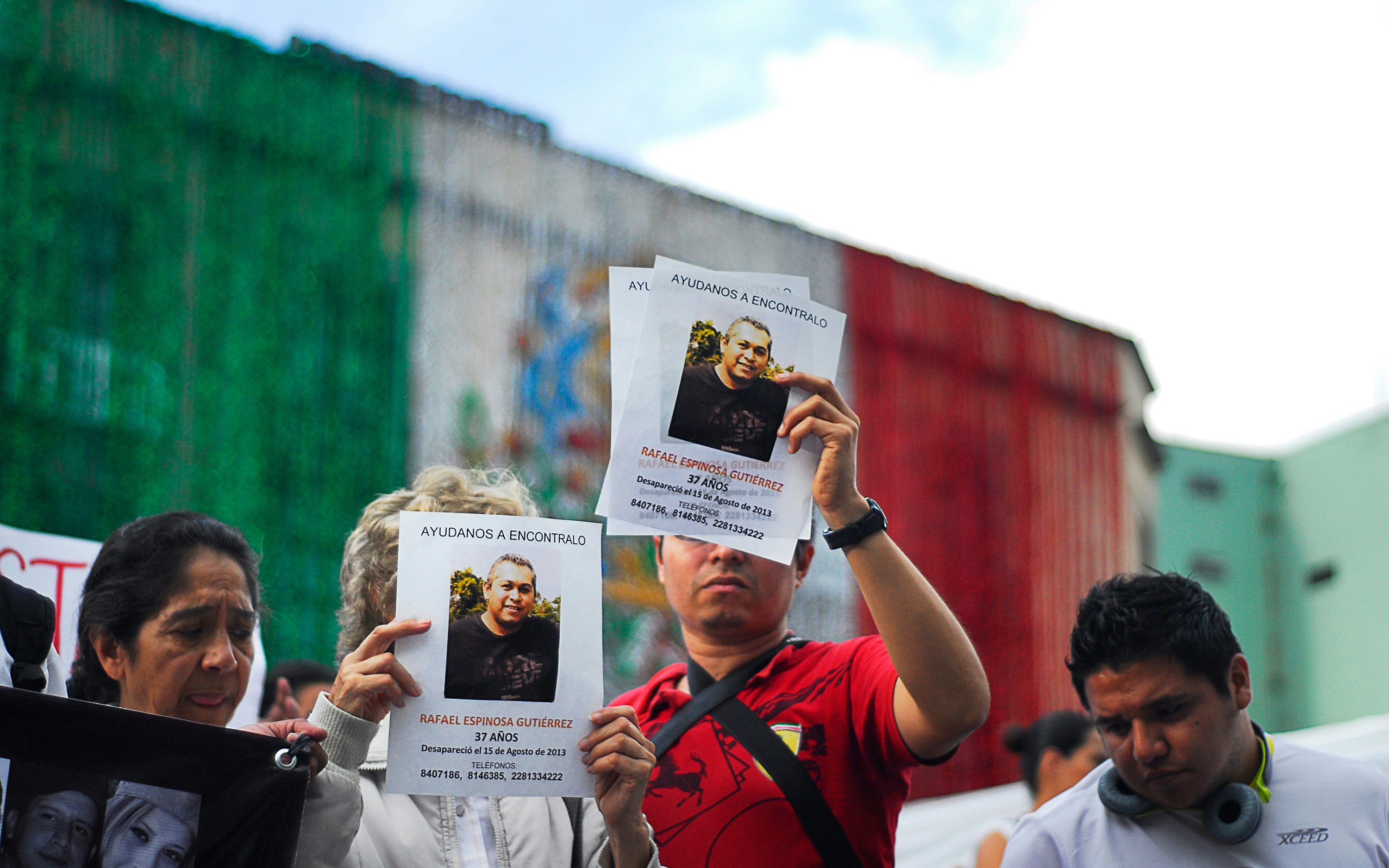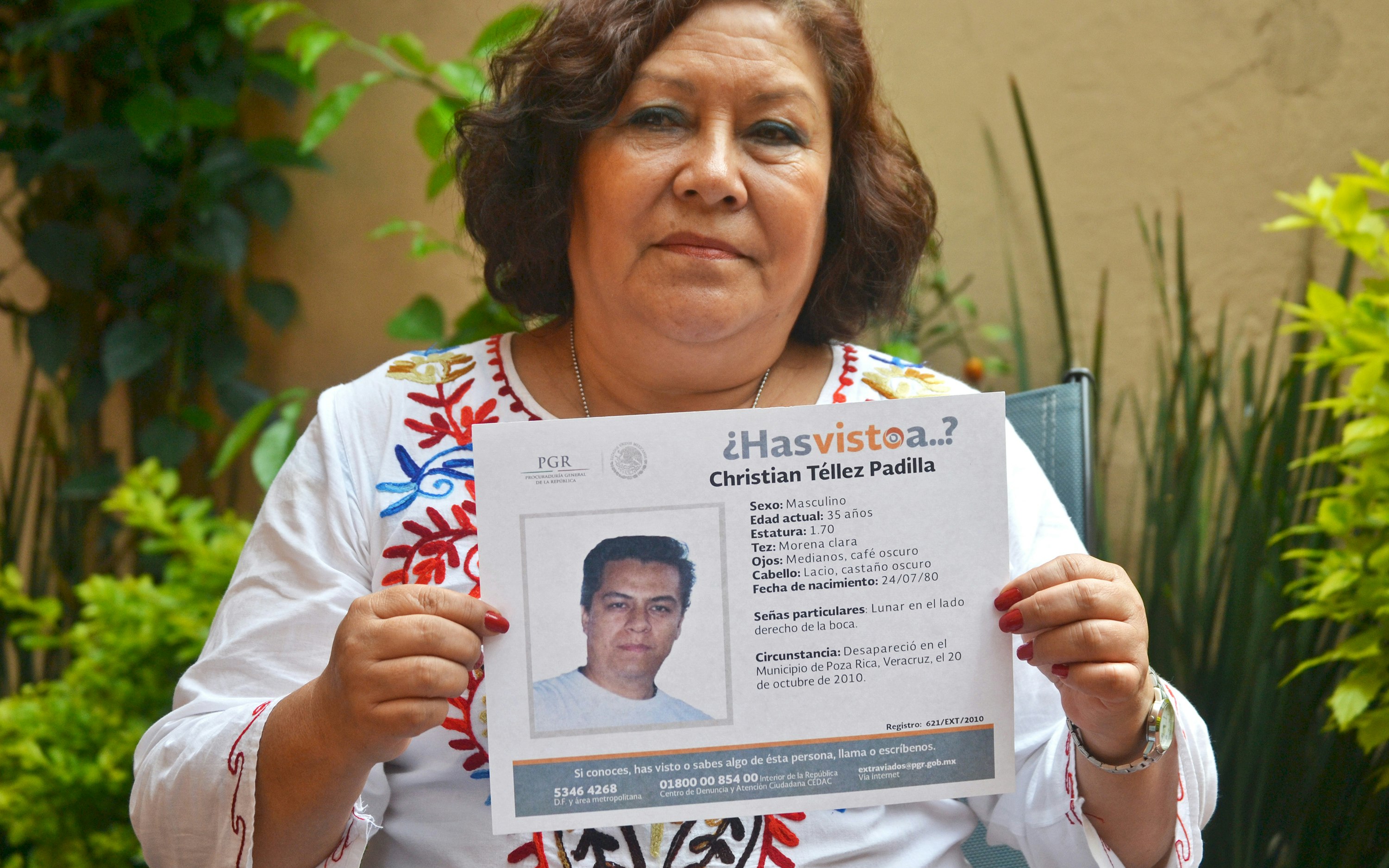New Report Calls for an Internationalized Response to Atrocity Crimes and Corruption in Mexico
MEXICO CITY/NEW YORK—The repeated failure of the authorities in Mexico to properly investigate and prosecute atrocity crimes is intimately connected to endemic corruption, and requires an internationalized response, according to a new report published today by the Open Society Justice Initiative in partnership with eight Mexican human rights and law organizations.
The report, Corruption that Kills: Why Mexico Needs an International Mechanism to Combat Impunity, argues that “international participation and support will be essential to combatting the political obstruction and partisan interests that currently impede Mexico’s troubled justice system.”
It proposes the creation of an accountability mechanism based inside the country, but composed of national and international staff that would have a mandate to independently investigate—and, when necessary, prosecute—atrocity crimes and high-level corruption.
James A. Goldston, executive director of the Open Society Justice Initiative, said, “The Mexican public knows that the justice system is not working and is weary of excuses. When the local system is broken, the usual response is to bring in the federal authorities. But when the federal system is broken too, the only answer is to look to the international community.”
Benjamin Cokelet, executive director of the Mexican corporate accountability and human rights group PODER, said, “This report highlights some ways that illicit interests capture the state, leaving our justice system powerless against the violence that threatens the daily lives of too many Mexicans. We need to cut through the criminal networks that have ensnared the state, and we need international assistance to do it.”
The 74-page report examines credible evidence that points to collusion between certain public officials and members of the Zetas drug cartel in the perpetration of likely crimes against humanity in the northern state of Coahuila between 2009–2012. In particular, it examines two of the most brutal episodes perpetrated by the Zetas in Coahuila during the height of that group’s power: the killing of approximately 300 men, women, and children in the municipality of Allende and nearby towns; and the disappearance and murder of an estimated 150 persons within the Piedras Negras prison during the period 2009–2012, when the facility served as a de facto Zeta operations center.
The report also examines how recent justice reforms in Mexico—in particular, the creation of a new, autonomous Fiscalía, and the establishment of a National Anti-Corruption System—do not currently possess the necessary independence or competence to investigate atrocity crimes or the corrupt networks between public officials and organized crime. The apparent collusion of public officials in atrocity crimes, and the strong ties they have to other high-level authorities, calls into doubt the ability of the Mexican government to independently investigate and prosecute these crimes.
Corruption that Kills was produced by the Open Society Justice Initiative in partnership with eight Mexican organizations: the Mexican Commission for the Defense and Promotion of Human Rights, the Diocesan Center for Human Rights Fray Juan de Larios, Families United for the Search of Disappeared Persons, Piedras Negras/Coahuila, I(dh)eas Human Rights Strategic Litigationos), the Mexican Institute of Human Rights and Democracy, Miguel Agustín Pro Juárez Human Rights Center, the Foundation for Justice and Rule of Law, and PODER.
The report was launched at a conference in Mexico City at the Universidad del Claustro de Sor Juana, organized by the Open Society Justice Initiative with the support of the Citizen Participation Committee of Mexico’s National Anti-Corruption System, together with El Colegio de México, the Drug Policy Program at the Centro de Investigación y Docencia Económicas, and the University Claustro Sor Juana.
This report follows the Justice Initiative’s 2016 report, Undeniable Atrocities, published with five Mexican human rights organizations, which found a reasonable basis to believe that Mexican federal forces and members of the Zetas cartel have perpetrated crimes against humanity. The report also examined why there has been such little accountability for these crimes and concludes that political obstruction at multiple levels was the primary impediment.
Almost three years later, the situation in Mexico has deteriorated even further. In 2017, Mexico experienced its deadliest year in two decades, with homicides exceeding 25,000 (surpassing 2011’s previous all-time high). Attacks on journalists and human rights defenders have increased sharply across the country in that same period, while more than half of Mexico’s disappeared were reported missing in the past six years alone. Torture remains a routine and “generalized” practice at both the state and federal level, a finding reaffirmed by the UN Special Rapporteur on Torture in early 2017.
###
The Corruption that Kills conference is taking place in conjunction with the opening of a temporary “pop-up” exhibition in Mexico City supported by the Open Society Foundations that seeks to promote public debate and discussion on the way that drug policies influence and shape communities around the world.
The Museum of Drug Policy, running from Friday, May 4, to Sunday, May 6, will feature more than 80 pieces by 26 artists from nine different countries, including 12 artists from Mexico. The Mexico City exhibition follows previous presentations in London, Montreal, and New York City.
Related Work
Case Watch: A Mother’s Search for Her Son Leads to Groundbreaking Decision on Disappearances in Mexico
In a major victory for the hundreds of disappeared people and their loved ones in Mexico, the nation’s highest court recognized the mandatory nature of urgent actions issued by the UN Committee on Enforced Disappearances.

Human Rights Groups Alert U.N. to Alarming Actions by Mexican Prosecutors
More than 120 human rights groups and individuals are warning the U.N. about alarming trends emerging from Mexico’s new national Prosecutor General’s Office and the State’s Prosecution services.
Case Watch: UN Finds Mexico Responsible for Man’s Disappearance, Relies on Witness’s Word
There are more than 40,000 people who are missing in Mexico. One family’s journey to find out what happened to their son could help others seeking justice.
